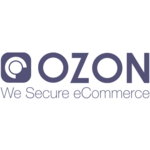Looking for the best network security software? Our buyer's guide has got you covered! Discover top-rated options, features, and make an informed decision to protect your network today.
Cybersecurity has become an increasingly important aspect of running a business. With an ever-growing number of cyber threats, it's critical to ensure that your organization's data and communications remain secure. One of the key tools in protecting your business from these threats is network security software. But with a wide range of options available on the market, it can be difficult to know which one to choose. In this buyer's guide, we'll take a closer look at some of the best options available and help you make an informed decision on which one is best suited to meet your organization's needs.
What is network security software?
This refers to a suite of tools and applications used by businesses and organizations to monitor and protect their networks from unauthorized access, hacking attacks, data theft, and other security threats. This system typically includes firewalls, antivirus software, intrusion detection and prevention systems, network access control systems, and virtual private network (VPN) software. According to Arubanetworks findings, 65% of organizations plan to adopt an SSE platform within the next 24 months.
Here are some common use cases of this solution:
- Protecting sensitive data: Network security software is used to safeguard highly confidential customer, financial, and intellectual property data held by businesses. This data must be protected from unauthorized data breaches and cyber attacks.
- Securing remote access: As businesses become more mobile and remote, security threats increase. This tool can help secure remote access, prevent data theft, and provide secure connections for remote workers.
- Enhancing regulatory compliance: Many businesses are required to comply with specific data security regulations. It can help these businesses meet these standards, such as HIPAA, PCI DSS, and GDPR.
- Preventing cyber attacks: Hackers are always looking for vulnerabilities in networks to exploit. A network security program can prevent and detect breaches, while enabling businesses to respond quickly and effectively to attacks.
Network security software is used by a variety of companies, including large enterprises, small-to-medium businesses (SMBs), and government agencies. The software is particularly important for companies in industries like healthcare, finance, and technology, where data privacy and security are paramount concerns. It is a vital part of any business's security strategy. It provides protection and peace of mind against various security threats, and helps businesses meet security standards and stay compliant with regulations.
What are the benefits of utilizing a network security solution?
This security platform is designed to protect organizations against a range of potential threats by preventing unauthorized access, detecting and removing malicious software, and regulating network traffic. Here are some of its key benefits:
1. Protection against cyber threats: The program blocks access from known malicious IP addresses and can identify, analyze, and mitigate potential threats in real-time.
2. Enhanced productivity: By providing a secure network environment, a network security tool prevents system downtime due to cyber-attacks, increasing productivity and reducing business losses.
3. Compliance with regulations: By implementing this system, businesses can remain compliant with industry regulations such as PCI DSS, HIPAA, and GDPR.
4. Detection of internal threats: The solution can detect and prevent unauthorized access by employees, contractors, and vendors.
5. Asset protection: A network security platform can track and monitor the use of business resources such as bandwidth and application access.
6. Cost savings: Implementing such an application can help businesses save money on IT support, associated hardware and software, and potential legal fees.
Network security software is essential for businesses that want to protect their assets and maintain a secure network environment. By implementing it, organizations can mitigate the risks of cyber-attacks and comply with regulations, while enhancing productivity and reducing costs.
10 key features of network security software
This security tool plays a vital role in safeguarding networks and ensuring that business information remains confidential. Here are 10 of its common features that businesses should consider:
1. Firewall protection: A firewall is the first line of defense for any network security system. It blocks unauthorized access to and from your network, preventing cyber threats from reaching your business assets.
2. Intrusion detection and prevention: Network security software typically includes intrusion detection and prevention features that analyze network traffic for suspicious activity and block potential attacks before they can penetrate the network.
3. Virtual Private Network (VPN): VPN solutions encrypt data that travels between remote employees and your business network, ensuring that communication with remote workers is secure.
4. Antivirus and anti-malware: This tool includes powerful antivirus and antimalware features that scan for and eliminate malicious software from your network.
5. Content filtering: Content filtering blocks access to websites and online content that are deemed inappropriate or unsafe based on an organization's policies.
6. Data loss prevention: Data loss prevention (DLP) is a critical feature in this system. DLP solutions track data as it moves within and outside the network, alerting administrators to any unusual activity that could compromise sensitive information.
7. Identity and access management: Identity and access management (IAM) features allow businesses to manage user access and permissions to different network resources, ensuring that only authorized users can access sensitive data.
8. Encryption: Network security software provides encryption features that secure data travelling between devices, ensuring that even if intercepted, data cannot be accessed.
9. Patch management: Patch management features ensure that software and applications are up-to-date and running the latest security patches, reducing the risk of vulnerabilities being exploited.
10. Security Information and Event Management (SIEM): SIEM capabilities provide real-time threat intelligence and alerts of potential security breaches, enabling prompt responses to mitigate damage.
What to consider when purchasing a network security system?
Businesses of all sizes and industries face a growing threat of cyber attacks. Hackers, cyber criminals, and other malicious actors can target your business, steal sensitive information, and cause significant financial and reputational damage. This is why investing in network security software is essential for any modern business that wants to protect its assets, customers, and operations. This segment will explore the key factors that businesses should consider when purchasing one.
Firstly, it's important to identify your business's specific security needs. This includes understanding the size and complexity of your network, the types of data you handle, the regulatory requirements you need to comply with, and the potential threats you face. The right solution should match your business's unique characteristics and provide effective protection against a wide range of external and internal threats.
Secondly, consider the features and capabilities of the security software you're interested in. Some of the key features to look for include endpoint protection, web filtering, intrusion detection and prevention, email security, firewall protection, and cloud security. Depending on your specific needs, you may require additional features such as anti-phishing protection, behavior-based analytics, and security management and reporting tools.
Thirdly, evaluate the vendor's reputation and support capabilities. You want to make sure that the one you choose is developed by a reputable vendor that has a proven track record of delivering reliable and effective security solutions. Additionally, consider the vendor's customer support options, including training and education resources, technical support, and professional services.
Fourthly, assess the cost and scalability of the network security software. The upfront cost of the app is just one aspect to consider. You also need to factor in ongoing maintenance and support costs, as well as any potential costs associated with upgrading or adding new features. Additionally, evaluate the scalability of the software to ensure that it can grow and adapt as your business evolves.
Lastly, consider the ease of deployment, management, and integration. The network security software should be easy to deploy and manage, with an intuitive user interface and minimal impact on network performance. Additionally, it should seamlessly integrate with your existing security infrastructure and business processes, reducing the risk of compatibility issues or operational disruptions. Research has shown that NSPM solutions decreased the time it required to investigate security problems and the frequency of security events by 41% and 57%, respectively.
Purchasing network security software is a critical investment for any business that wants to protect against cyber threats.
Industry trends for network security software
Network security software is an ever-evolving industry that is critical to modern-day businesses. As security threats become increasingly complex, the need for advanced protection is at an all-time high. In 2024, this trend is set to continue, with various security solutions emerging to tackle the challenges ahead.
Firstly, Identity and Access Management (IAM) will become a significant area of focus. The rise of remote work has led to an increase in the number of identity security threats. IAM solutions use machine learning and AI technologies to secure network access by ensuring that only authorized personnel can gain access to sensitive company data.
Another trend we can expect is the rise of Zero Trust Security. This security model requires identity verification for users requesting access to sensitive information, regardless of the user's location. It is a critical security measure that will enable businesses to respond quickly to emerging threats.
The use of Artificial Intelligence (AI) and Machine Learning (ML) will continue in network security software. AI and ML technologies will help organizations detect and respond to cyber-attacks faster than traditional security measures.
Finally, we will see an increase in the adoption of cloud-based security solutions. This trend is driven by the need for businesses to protect their data even as they move to the cloud. Cloud-based security solutions provide advanced, real-time security against cyber-attacks, and they offer an easy-to-deploy solution for organizations looking for safer options.
By adopting these technologies, businesses will bolster their security and enable them to respond quickly to ever-changing cyber threats.
Conclusion
In conclusion, network security software is an indispensable element in protecting digital assets and ensuring the smooth operation of modern organizations. As technology and cyber threats continue to evolve, so must the strategies and tools employed to defend against them. Investing in advanced network security solutions, staying informed about emerging threats, and fostering a culture of security awareness are all critical steps toward achieving comprehensive cyber resilience.





